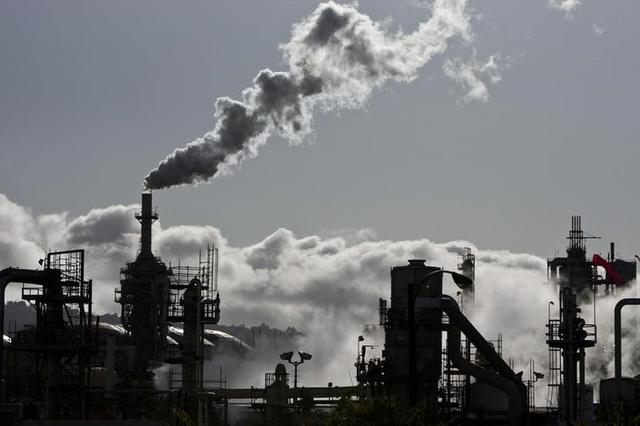SN Misra
In 1990, Pakistani Economist Mahbub ul Haq, in close collaboration with Noble laureate Amartya Sen evolved the Human Development Index (HDI) which went beyond the misdirected power of GDP to account for human development capability in terms of education and longevity. Two decades later the UNDP added three more measures of human development — gender inequality index (GII), inequality-adjusted HDI (IHDI) and multi-dimensional poverty index (MDPI). The GII factors in maternal mortality rate, female workforce participation and representation in Parliament. The IHDI takes into account inequality while measuring a country’s average achievements in health, education and income. The MDPI goes beyond education and health and looks at household level deprivation in terms of Infant Mortality Rate (IMR), nutrition, school attendance, cooking fuel, sanitation, drinking water, housing, electricity and asset holding.
The UNDP has now introduced a new index called planetary pressures–adjusted HDI (PHDI) which looks at how carbon dioxide emission and material footprint are going to affect human progress. In the wake of Covid-19, a UNDP report assesses that around 100 million people have slumped into extreme poverty. Given the record-breaking temperature and spiralling inequality, the UNDP thought it fit to redefine progress when our carbon consumption footprints are no longer viable. It is therefore, time for all countries to redesign their path to progress by accounting for the dangerous pressure being put on the planet. PHDI clearly shows how 50 countries have dropped out of very high HDI grouping, reflecting their high dependence on fossil fuel and material footprint. On the other hand, countries like Costa Rica and Moldova have moved up the ladder by working on sustainable environment. The next frontier of HDI would require working with and not against nature. For example, by 2030 the poorest of countries would experience around 100 days of extreme weather due to climate change, which can be cut down by half if the Paris agreement of climate change is fully implemented. The irony is that fossil fuel is being subsidised by several countries, accounting for nearly 6.5 per cent of global GDP (5 trillion dollar). The report gives a picture of how PHDI measures human development in a different manner. For instance, Norway which has been a top draw in HDI with a score of 0.957, receives a score of 0.78 in PHDI.
Noble laureate in Economics William Nordhaus had integrated climate change into long term macroeconomic analysis. Another Nobel laureate Paul Romer had integrated technological innovation into long term growth. In a remarkable editorial in the New York Times titled “Greed and Globalisation” Thomas Friedman had brought out how we have deforested Amazon, invaded pristine ecosystems and hunted wildlife. When we destroy more and more natural habitat and hunt for more and more wildlife the natural balance of species collapses. The corona crisis has happened because animals are hunted, trapped and taken to markets by China, Central Africa countries and Vietnam, endangering human life.
The UNDP report also makes a strong case for reducing income inequality. Covid-19 has exposed weakness in social, economic and political system and the vulnerability of the poor in an increasingly unequal society. The report calls for imposing progressive income tax and protection of coastal communities through preventive investment and insurance. That would safeguard lives of about 440 million people who live along the world’s low-elevation coastline. Similar protection is also required in hilly regions which are being thoughtlessly denuded of vegetation due to rampant construction. Thomas Piketty in his seminal book Capital in the Twenty-First Century (2014) had drawn the attention to the menace of income inequality and the need to impose wealth tax to usher in a more egalitarian world.
In Shakespeare’s Julius Caesar, Cassius had famously remarked “the fault is not in our stars but in us.” The time has come not only to expand human capability but also ensure that we enter into a planet which cares for controlling carbon dioxide emissions and its material footprint. The UNDP report has rightly brought out the perils of climate crisis, biodiversity collapse and ocean acidification. Instead of the planet shaping the humans, the humans are increasingly shaping the planet. Therefore, the frontier of human development index would require to work with nature and not against it.
While India seems to show a reasonable record in terms of adhering to the expectations of the Paris agreement, the government needs to look at the challenges of high degree of poverty, malnutrition and increasing inequality. Growth, development and sustainment are the tripod of any sensible public policy. The present obsession with growth has to give way to a greater momentum towards human development capability, reduction in income disparity by using fiscal instruments like progressive income tax, if India wants demographic dividend to become a sustainable reality.
The report brings out the stark choice for world leaders to reduce the immense pressure being exhorted on the environment and the natural world as people and the planet enter into an entirely different geological epoch, the Anthropocene or the age of human. It is time for all countries to redesign their path to progress by fully accounting for the dangerous pressure humans put on the planet and the gross imbalance of power, income and opportunity that prevents change by adjusting HDI to include carbondioxide emission and material footprint. The new index shows how the global development landscape would change if both the wellbeing of the people and the planet are made central to define humanity. The world must not look at only the size of its GDP pie but the oven that bakes it. By tackling inequality, capitalising on innovation and working in harmony with nature, human development could take a transformational step forward to support people and the planet together.
The writer teaches Economics. Views are personal.
